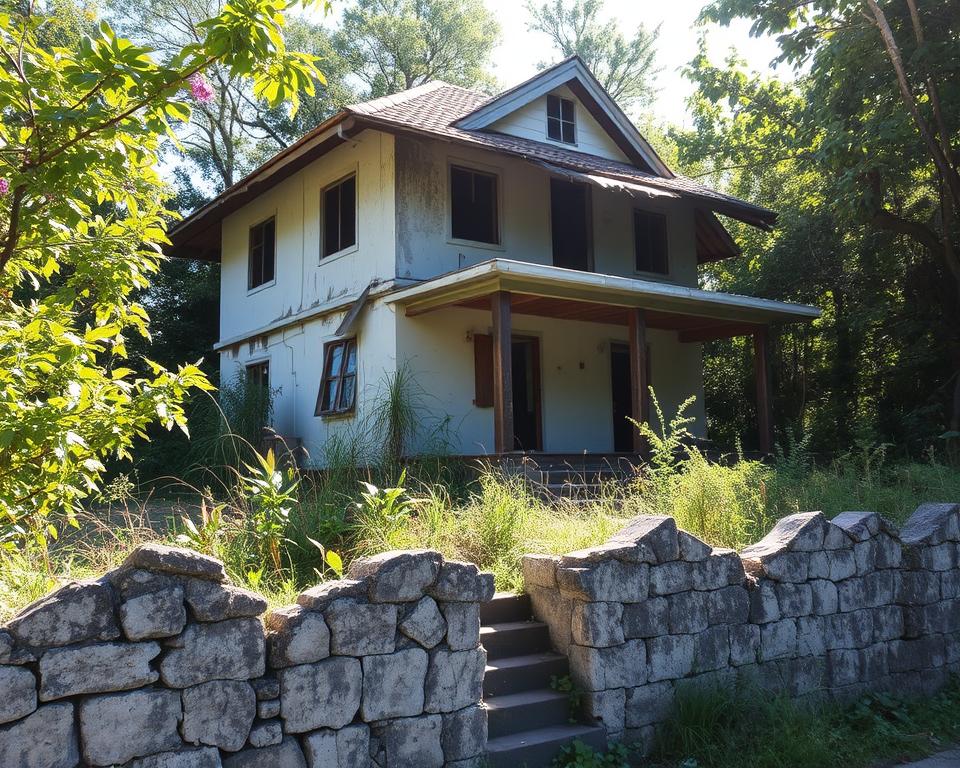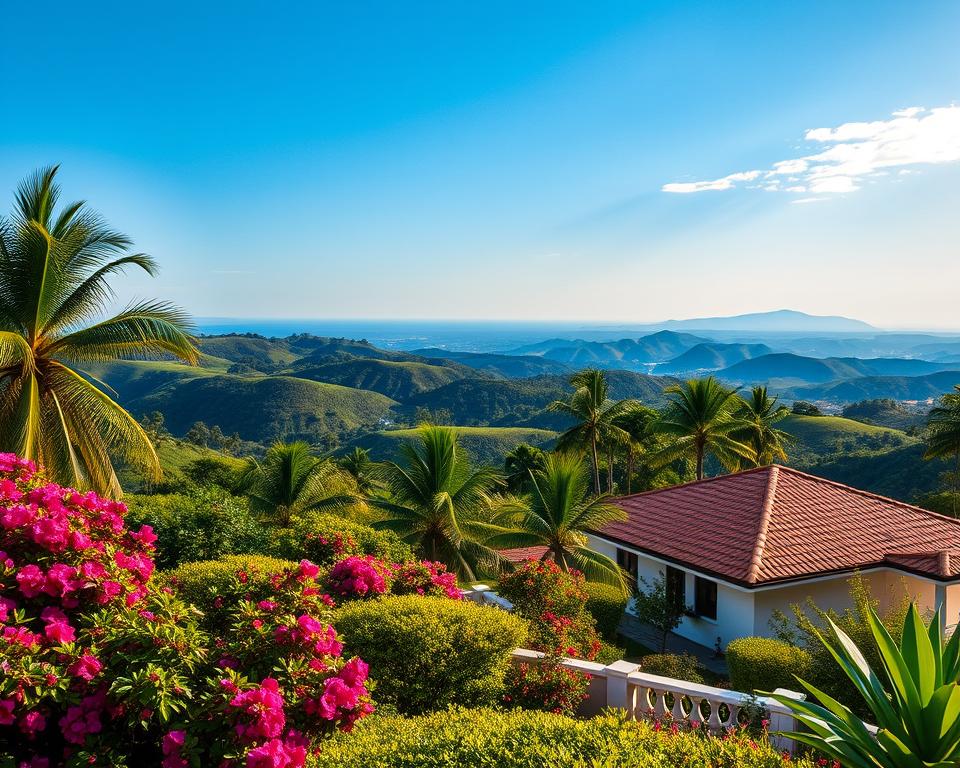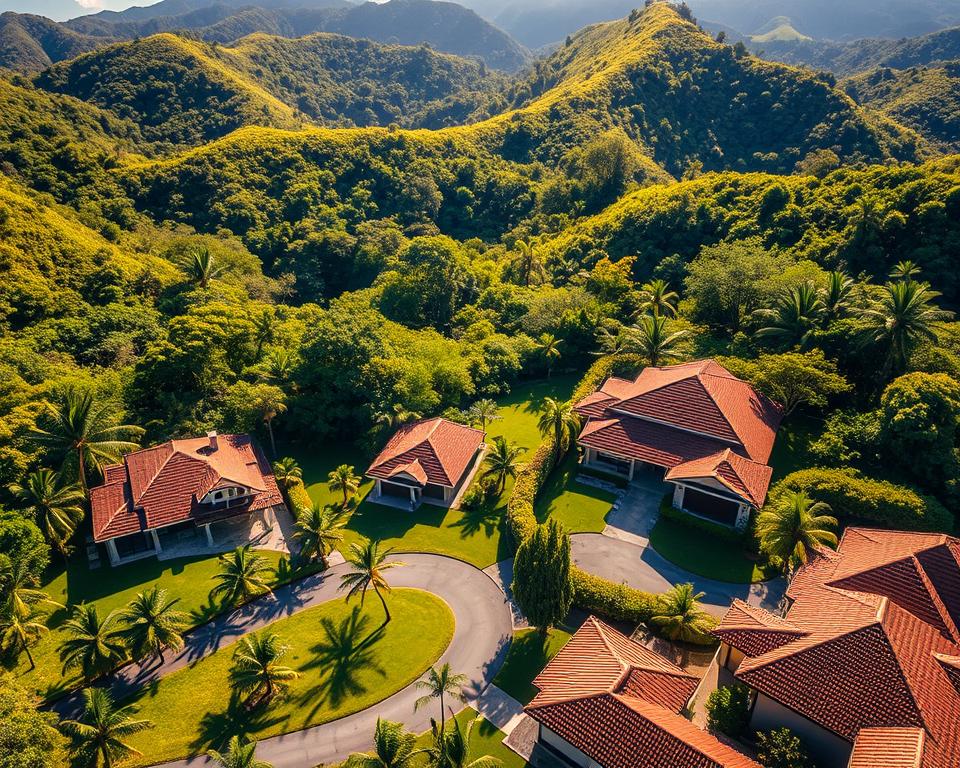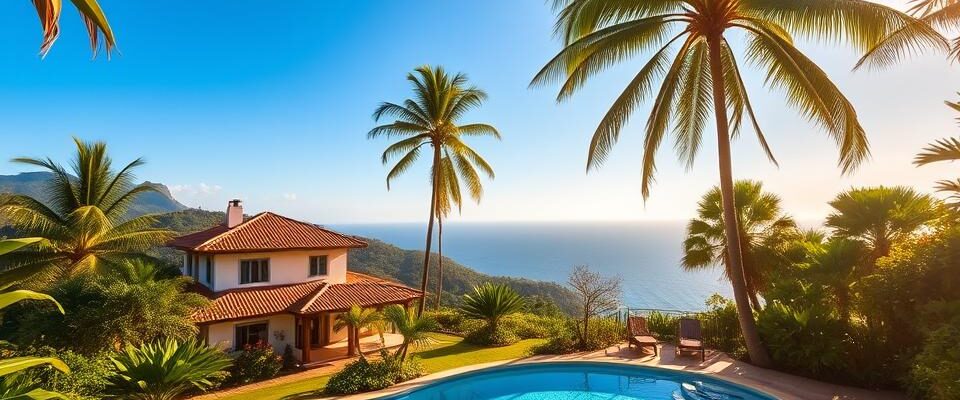Sell Your House As-Is in Costa Rica with Us
Did you know that in Costa Rica, homes are typically sold “as-is” without the need for detailed disclosures, differing significantly from real estate practices in countries like the United States or Canada? At Gap Real Estate (Grupo Gap LLC SRL), we simplify the process of buying, selling, or investing in
With over two decades of coast-to-coast experience, we understand the local protocols and expectations that make selling a property “as-is” both common and practical. Our expertise ensures that property owners can navigate the process effectively, from preparation to closing.
Understanding the local market is crucial for successfully selling a property in its current condition. We emphasize that selling “as-is” doesn’t mean accepting a lower value; rather, it’s about positioning and marketing the property effectively to attract the right buyer.
Understanding the Costa Rican Real Estate Market
Understanding the nuances of Costa Rica’s real estate market is crucial for anyone looking to buy or sell a property in the country. The market is influenced by a unique blend of cultural norms, legal requirements, and economic factors.
The Unique “As-Is” Culture in Costa Rica
In Costa Rica, it’s common for houses to be sold “as-is,” without the seller making any significant repairs or renovations. This cultural understanding is deeply ingrained, and buyers typically purchase properties in their current condition. The law obliges sellers to disclose hidden defects, but enforcing this can be challenging.
The “as-is” culture is part of a broader cultural context that values simplicity and practicality. Costa Rican buyers often prioritize other factors over the property’s condition, reflecting a more relaxed approach to real estate transactions.
How Costa Rica Differs from North American Markets
Costa Rica’s real estate market differs significantly from those in North America, particularly in its informal nature and the “Pura Vida” philosophy that pervades transactions. Unlike the highly regulated markets in the U.S. and Canada, Costa Rica’s market is more flexible, with less emphasis on formal disclosures and inspections.
Foreign buyers are increasingly influencing the market, bringing new expectations about property conditions and disclosures. Regional differences within Costa Rica, such as between coastal and central valley areas, also play a significant role in shaping the market.
Understanding these differences is crucial for setting appropriate expectations and pricing strategies. Whether you’re a local or foreign buyer, navigating Costa Rica’s real estate market requires a nuanced understanding of its unique characteristics.
The Legal Framework for Selling a House As-Is in Costa Rica
The legal landscape for as-is property sales in Costa Rica is distinct and requires careful navigation. Costa Rica’s real estate laws govern the sale of properties, including those sold as-is, with specific regulations that impact both sellers and buyers.
Disclosure Requirements and Realities
In Costa Rica, sellers are legally obligated to disclose hidden defects or issues that could affect the sale of a property. However, the enforcement of this law can be challenging, and the onus is on the buyer to conduct due diligence. Unlike places like California, Costa Rica does not have detailed disclosure requirements, making it essential for buyers to be vigilant.
- Sellers must disclose known defects that could impact the property’s value or desirability.
- Buyers are advised to conduct thorough inspections to uncover any potential issues.
- The lack of stringent disclosure laws in Costa Rica means buyers must be proactive.
Legal Protections for Sellers and Buyers
While Costa Rica’s laws may seem relaxed compared to North America, there are still legal protections in place for both parties in an as-is transaction. Attorneys and notaries play a crucial role in formalizing the sale and ensuring that the as-is nature of the transaction is clearly documented.
- Purchase agreements typically include language that specifies the property is being sold as-is.
- Legal professionals help ensure that the sale is conducted fairly and that both parties understand the terms.
- Clear documentation is key to preventing legal disputes down the line.
By understanding the legal framework governing as-is property sales in Costa Rica, both sellers and buyers can navigate the process more effectively, ensuring a smoother transaction for all parties involved.
Common Challenges When Selling Property “As-Is”
Navigating the “as-is” property sale process in Costa Rica requires an understanding of the local real estate market and its nuances. Selling a property “as-is” can be complex, particularly when dealing with international buyers who may have different expectations than local buyers.
Buyer Expectations vs. Local Practices
One of the primary challenges sellers face is the disparity between buyer expectations and local practices in Costa Rica. Foreign buyers, especially those from North America, often expect a certain level of disclosure and inspection contingencies, which are not standard in Costa Rica’s real estate market. Local buyers typically do not use home inspectors, and the due diligence process differs significantly from what is common in other countries.

Navigating Property Condition Issues
Property condition is another significant challenge when selling “as-is.” Costa Rica’s tropical climate can lead to specific issues such as moisture problems, termite damage, and weather-related wear. Sellers must be prepared to address these concerns without committing to extensive repairs. Strategies for managing buyer concerns include being transparent about the property’s condition and highlighting its positive aspects. Effective communication is key to avoiding misunderstandings during negotiations.
Preparing Your Costa Rican Property for an As-Is Sale
Preparing your Costa Rican property for an as-is sale requires a strategic approach to attract buyers. Even if your property is not in perfect condition, making a good impression can significantly impact its saleability.

Focus on Curb Appeal Without Major Investments
First impressions matter, even when selling a property as-is. Focus on enhancing your property’s curb appeal without breaking the bank. Simple actions like basic landscaping, cleaning the entrance, and making minor repairs can significantly improve your property’s exterior appearance.
- Maintain a tidy lawn and trim bushes
- Clean the front door and add a welcoming touch
- Repair any broken fixtures or minor damages
Strategic Decluttering and Home Staging
Strategic decluttering can make your spaces appear larger and more appealing. Remove unnecessary items and organize your belongings to create a sense of openness. Simple home staging techniques, such as rearranging furniture and highlighting your property’s existing strengths, can also enhance its appeal.
- Remove clutter and organize your belongings
- Use lighting to create a welcoming atmosphere
- Highlight your property’s best features
Highlighting Your Property’s Unique Features
Identify and showcase the unique features of your Costa Rican property that appeal to the local market. This could include indoor/outdoor living spaces, scenic views, or natural ventilation. By highlighting these features, you can attract buyers looking for specific qualities in a property.
- Emphasize indoor/outdoor living areas
- Highlight scenic views or natural surroundings
- Showcase natural ventilation and cooling features
Pricing Strategies for As-Is Properties in Costa Rica
Pricing an as-is property in Costa Rica requires a deep understanding of the local real estate market dynamics. The condition of the property significantly impacts its pricing, and sellers must be realistic about their property’s value.
Setting Realistic Expectations
To set a realistic price, sellers should objectively assess their property’s condition, taking into account any needed repairs or renovations. A comparative market analysis is crucial in determining the right price point, although finding truly comparable properties in Costa Rica can be challenging.
The Price-Condition Balance
The price of an as-is property must balance between attracting buyers and reflecting the property’s true condition. Different types of buyers, such as investors, retirees, locals, and foreigners, approach property valuation differently. Sellers should target their pricing strategy accordingly. For instance, investors might be more interested in properties that need renovation, while retirees might prefer move-in-ready homes.

Transparency about the property’s condition is key, but maintaining value is equally important. Sellers should be prepared to make strategic price adjustments based on market feedback rather than reacting impulsively to initial responses. By understanding the local real estate market and setting a competitive price, sellers can successfully sell their as-is property in Costa Rica.
The Home Inspection Process in Costa Rica

The home inspection process in Costa Rica differs significantly from what you might be used to in North America. In Costa Rica, home inspectors may not have the same certifications as those in the U.S. or Canada, such as NAHI, FABI, NACHI, ESA, or ICC. However, many inspectors have valuable building experience in various countries, which can be beneficial.
A typical home inspection in Costa Rica involves a visual examination of the property, including its electrical, plumbing, and other critical systems. While it may not include advanced tests like thermal scanning, mold and moisture inspection, or radon testing, a competent inspector can still provide a thorough assessment of the property’s condition.
What to Expect from Costa Rican Home Inspectors
Costa Rican home inspectors typically conduct a visual inspection, checking the property’s major systems and components. They may not have the same level of training or certification as inspectors in other countries, but many have practical experience in construction and repair.
When hiring a home inspector in Costa Rica, look for individuals with a background in building and construction. They may not have international certifications, but their local knowledge can be invaluable in assessing the property’s condition.
Creating a Smart Inspection Contingency
When making an offer on a property in Costa Rica, it’s wise to include a home inspection contingency. This allows the buyer to have the property inspected within a specified timeframe, usually two weeks. The contingency should specify what conditions would allow the buyer to default on the purchase.
A smart inspection contingency might state that only significant issues, such as structural damage, septic or drainage problems, or roof damage, would give the buyer the option to cancel the sale. Minor cosmetic issues would be accepted by the buyer, ensuring a smooth transaction.
Marketing Your As-Is Property Effectively
Effective marketing is crucial when selling an as-is property in Costa Rica’s competitive real estate market. To attract potential buyers, you need to present your property in the best possible light while being honest about its condition.
Honest Presentation Without Underselling
When marketing your as-is property, it’s essential to strike a balance between honesty and highlighting its positive aspects. Crafting a property description that acknowledges the condition while emphasizing its potential and unique features is key.
High-quality photography is also vital, as it presents the property in its best light while being truthful about its state. This approach helps build trust with potential buyers and sets realistic expectations.
Targeting the Right Buyer Demographics
Identifying and targeting the right buyer demographics is crucial for the successful sale of an as-is property. Investors, DIY enthusiasts, and budget-conscious buyers are often more interested in properties that need work.
Leveraging digital marketing channels, including social media and international property portals, can help reach these buyer demographics. Virtual tours and videos are particularly effective for international buyers who cannot visit the property in person.
By understanding your target audience and presenting your as-is property in an honest and appealing way, you can attract the right buyers and facilitate a successful sale in Costa Rica’s real estate market.
Why Choose Gap Real Estate for Selling Your House As-Is in Costa Rica
At Gap Real Estate, we’ve spent over two decades perfecting the art of selling houses as-is in Costa Rica. Our extensive experience and deep understanding of the local real estate market make us the ideal partner for sellers looking to navigate the complexities of as-is property sales.
Our 20+ Years of Coast-to-Coast Expertise
With over 20 years of experience in the Costa Rican real estate market, we possess a unique understanding of the intricacies involved in as-is property sales. Our coast-to-coast expertise allows us to access a wider network of potential buyers across different regions of Costa Rica, ensuring that your property gets the exposure it deserves.
End-to-End Support Through the Selling Process
At Gap Real Estate, we provide comprehensive support to sellers throughout the entire selling process. From initial property assessment to final closing, we handle the complexities so you don’t have to. Our services include property assessment, pricing strategy, targeted marketing, and negotiation support, ensuring a seamless transaction.
Our Results-Driven Approach to As-Is Sales
Our team is dedicated to delivering results-driven service, prioritizing your success whether you’re selling a dream home or securing a strategic investment. We leverage both local and international networks to target the right buyers for as-is properties, and our bilingual team bridges cultural gaps between local practices and international buyer expectations.
Conclusion: Simplifying Your As-Is Property Sale in Costa Rica
Simplifying the process of selling your house as-is in Costa Rica is our expertise. Throughout this guide, we’ve covered key aspects of successfully navigating the local real estate market. Understanding Costa Rica’s unique “as-is” culture and legal framework is crucial for a smooth transaction.
By focusing on curb appeal, strategic decluttering, and highlighting your property’s unique features, you can attract qualified buyers. Pricing your property correctly and marketing it effectively are also vital steps. Working with experienced professionals like Gap Real Estate ensures you’re well-equipped to handle the process, from preparation to closing.
With the right approach, selling your property as-is doesn’t mean sacrificing its value. We’re here to simplify every step, ensuring clarity, confidence, and a stress-free experience. Ready to move forward? Contact us at Gap Real Estate, call or WhatsApp +5064001-6413, or email [email protected] for a consultation.




